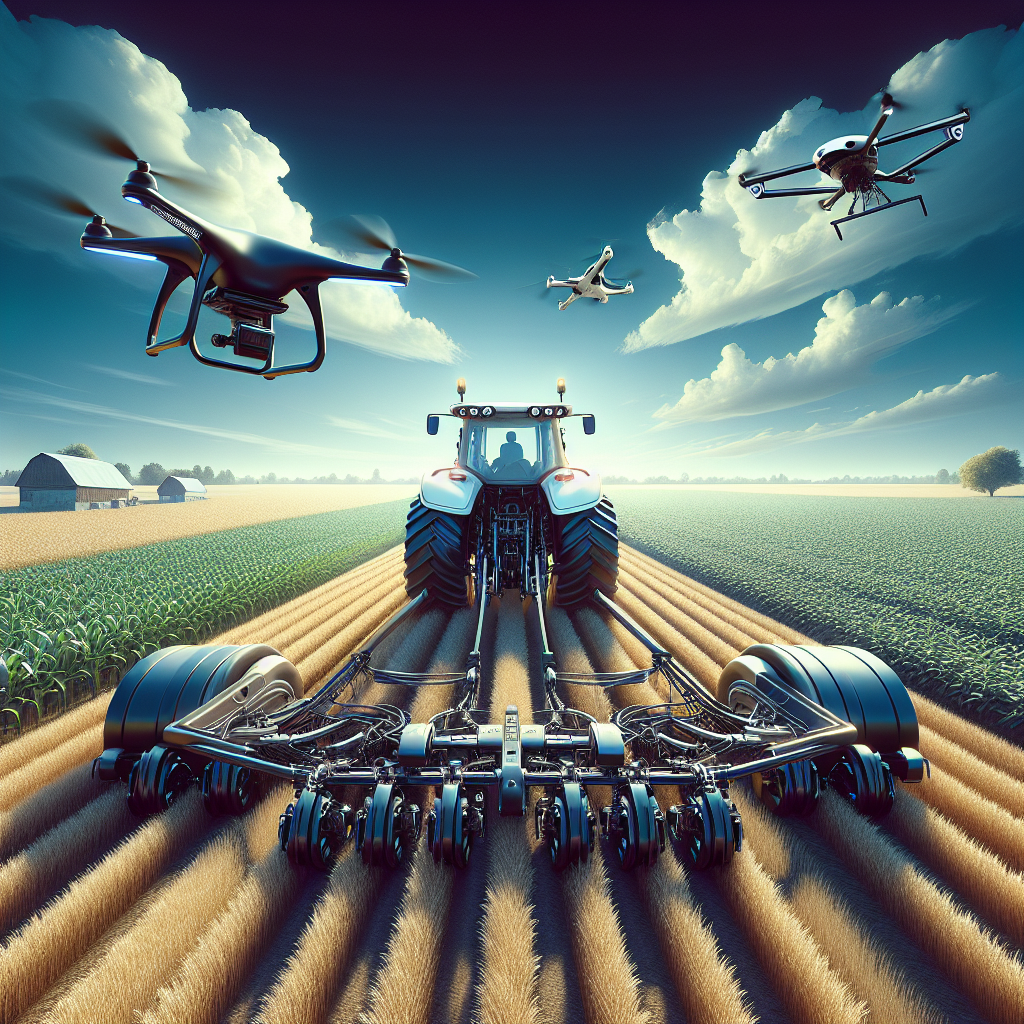This post may contain affiliate links which means I may receive a commission for purchases made through links. Learn more on my Private Policy page.
Are you a farmer looking to boost the productivity of your crops? Look no further than precision farming equipment. With advanced technology and precise data analysis, precision farming equipment can help you achieve optimal crop yields. With the ability to monitor and control various aspects of your farming operations, such as soil moisture levels, nutrient distribution, and irrigation, this innovative equipment allows you to fine-tune your farming practices for greater efficiency and increased yields. Say goodbye to guesswork and hello to precision farming equipment for a bountiful harvest.
Understanding Precision Farming
Welcome to our comprehensive guide on understanding and harnessing the power of precision farming! In this article, we will explore the definition of precision farming, its importance in modern agriculture, the different types of precision farming equipment, its impact on crop yields, techniques in soil management, the role of data, sustainability in agriculture, challenges faced, strategies for overcoming barriers, and the future of precision farming. We will also delve into case studies that demonstrate successful implementation of precision farming. So, let’s embark on this journey and unlock the potential of precision farming together!

Defining Precision Farming
Precision farming, also known as precision agriculture or site-specific farming, refers to the use of advanced technologies and techniques to optimize agricultural practices. It encompasses the application of tools such as sensors, GPS, automated machinery, drones, mobile applications, and software solutions to gather real-time data, monitor crops, analyze soil conditions, and make informed decisions. The primary goal of precision farming is to maximize crop yields, minimize resource wastage, and improve efficiency and sustainability in agricultural operations.
Understanding the Importance of Precision Farming
Precision farming plays a pivotal role in addressing the challenges faced by modern agriculture. With a growing global population and shrinking arable land, it is more crucial than ever to optimize agricultural practices to feed the world sustainably. By adopting precision farming techniques, farmers can reduce their reliance on chemical inputs, conserve water resources, minimize soil erosion, and enhance crop quality and yield. Precision farming also enables farmers to make data-driven decisions, thereby improving their overall productivity and profitability.
Impact of Precision Farming on Agriculture
The impact of precision farming on agriculture is multifaceted and profound. By utilizing precision farming equipment, farmers can achieve higher crop yields, increased efficiency, and reduced environmental footprint. This technology enables farmers to precisely monitor and manage their crops, ensuring optimal growth conditions and addressing specific needs. Precision farming also aids in mitigating risks associated with unpredictable weather patterns, pests, diseases, and soil variations. In short, precision farming revolutionizes traditional agriculture by maximizing productivity while minimizing resource wastage.
Types of Precision Farming Equipment
To implement precision farming effectively, farmers can utilize various types of equipment and tools. Let’s explore some of the key ones:
Sensors and Monitors
Sensors and monitors are invaluable tools in precision farming as they provide real-time data on various crop parameters. These sensors can measure factors such as soil moisture, nutrient levels, temperature, humidity, and even plant growth stages. By collecting accurate data, farmers can monitor crop health, detect anomalies, and make timely interventions to optimize growth conditions.
GPS and Mapping Tools
Global Positioning System (GPS) technology forms the backbone of precision farming. By utilizing GPS and mapping tools, farmers can precisely determine their position and map their fields. This enables them to create accurate field boundaries, plan crop rotations, and navigate their machinery with precision. GPS also assists in collecting geospatial data, which aids in analyzing field variability and optimizing resource allocation.
Automated Machinery
Automation plays a pivotal role in precision farming. Automated machinery, such as variable rate equipment and self-steering tractors, allows for precise and efficient application of inputs based on real-time data. For instance, variable rate seeding equipment can adjust seeding rates based on soil conditions, optimizing plant populations and maximizing yields. These automated machines not only increase productivity but also reduce labor requirements and minimize human error.
Drones and Unmanned Aerial Vehicles
Drones and unmanned aerial vehicles (UAVs) have emerged as game-changers in precision farming. Equipped with high-resolution cameras and other advanced sensors, drones can capture aerial imagery of fields and gather valuable data. This data can be used to create detailed field maps, monitor crop health, detect signs of stress or disease, and assess plant populations. Drones provide farmers with a bird’s-eye view, aiding in precise decision-making and targeted interventions.
Mobile Applications and Software Solutions
Mobile applications and software solutions have revolutionized the way farmers manage their operations. From crop planning and monitoring to data analysis and decision-making, these tools provide farmers with real-time insights and actionable information. Mobile applications allow farmers to remotely monitor their fields, receive alerts, and even control irrigation systems. Software solutions enable data analysis, predictive modeling, and optimization of farm operations.
That concludes the first part of our comprehensive guide on understanding precision farming. In the next section, we will explore how precision farming techniques enhance crop yields through increased efficiency and productivity. Stay tuned!

This post may contain affiliate links which means I may receive a commission for purchases made through links. Learn more on my Private Policy page.

